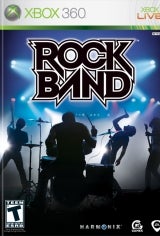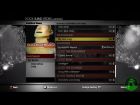Contents
The Basics
What the heck is Rock Band, anyway?
Rock Band is the evolution of rhythm games like Guitar Hero and Karaoke Revolution. Selling in a special bundle for $169.95, the game is packaged with a game disc, a guitar controller, drum controller and USB microphone, as well as 45 licensed songs that form the soundtrack for three solo campaigns for guitar, drum and vocals.
The meat of Rock Band, however, is the ability to have four people play together as a group, playing either single songs in the Quick Play mode or progressing through the marquee "Band World Tour" mode. Here, you start out playing small gigs, build up a following and march your way towards the Hall of Fame. At the moment, Rock Band is only available for the Xbox 360 and PlayStation 3 and coming later this year for the PlayStation 2 (a Wii version is long-rumored but unconfirmed).
The 45 licensed tracks cover a wide range from the last 40 years of rock, from The Who to Metallica to Queens of the Stone Age. In the solo campaigns, players pound their way through nine tiers of songs of five songs apiece; the Band World Tour is much more free-form, as bands generally have multiple gigs they can take on at any time throughout the world. Additionally, there are 13 bonus songs, often from independent acts or in-house bands Harmonix bands, and a healthy amount of downloadable content is planned to be released on a regular basis at roughly $2 a song, with more tracks from artists such as Metallica and The Police announced for the first week.
If you've played any of Harmonix's previous rhythm games, the interface for Rock Band should look pretty familiar. Guitar and drums play out the same as in Guitar Hero: each song is broken down into notes that descend down the screen, and you either strum or drum along depending on the instrument. Vocals use an interface similar to Karaoke Revolution: lyrics scroll across the screen with a line indicating relative pitch, which you try to match.
Scoring also works similarly to GH and KR: You get points for every note or phrase you successfully complete, with bonuses for consecutive streaks. As your score goes up, you'll get rated anywhere from 1 to 5 stars; miss too many notes and you'll fail the song. Rock Band also has its version of Guitar Hero's Star Power: successfully playing certain phrases allow you to collect energy, which you can then use to activate "Overdrive" for double points. The major difference here is that you'll continue to collect energy even while Overdrive is activated, making it possible to have extra-long bonus sections.
In addition to the single-player and band modes, Rock Band also supports online multiplayer action. You can play 1v1 matches on any instrument in two modes called Tug of War or Score Duel, or you can hook up with friends online to play as a band in the Quickplay mode. Sadly, it's currently not possible to play through the World Tour online; a patch adding online support for the Band World Tour is currently rumored, but for now, it's strictly an in-person experience.
Those are the basics, which we'll cover in far more depth throughout this super-sized review. To start, however, we'll jump to the aspect of Rock Band most gamers are likely familiar with: the guitar.





